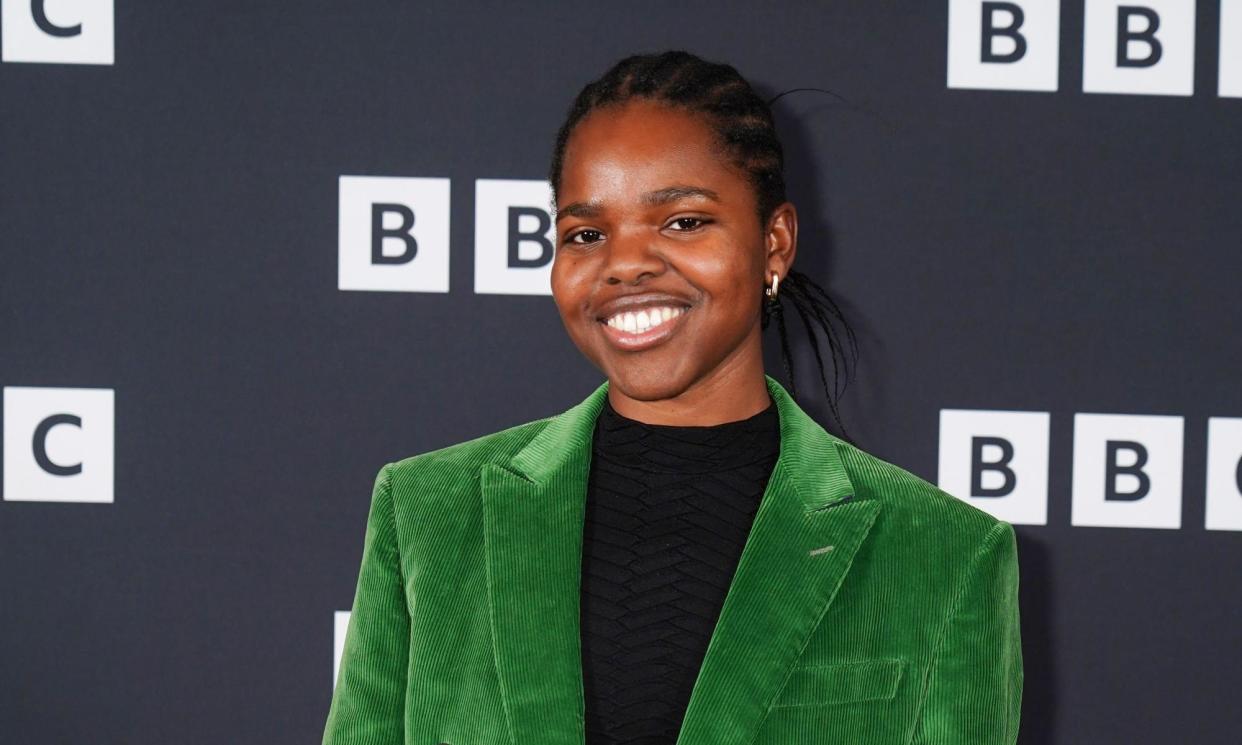Black actor who faced abuse over role in Romeo & Juliet calls for industry-wide action

The actor Francesca Amewudah-Rivers, who received a barrage of online racial abuse after being cast in a production of Romeo & Juliet this year, has called for industry-wide action to protect black and brown actors.
The abuse aimed at Amewudah-Rivers began after the Jamie Lloyd Company theatre group announced the cast of its production in April, with Amewudah-Rivers to play Juliet and the Spider-Man star Tom Holland playing Romeo.
Amewudah-Rivers has revealed she also received hate mail, and that she did not feel safe while working on the play, her West End stage debut, at the Duke of York’s theatre.
“There were many days where I didn’t know how I was going to get through it,” she told the Stage. “The flurry of abuse was sustained throughout the whole job. I received death threats, hate mail sent to the theatre. I didn’t feel safe at work.”
Related: ‘Too much to bear’: Black actors condemn racial abuse of Romeo & Juliet star
The 26-year-old, who was nominated at this year’s Black British theatre awards, said the minimal set and closeup camerawork of the production made her feel “very exposed” on stage. “Off the back of the abuse, having to stare down the camera lens and have my face be blown up in this theatre was really tough mentally,” she said.
Amewudah-Rivers said the harassment also affected her family and friends, as well as the show’s cast, crew and producers at the Jamie Lloyd Company, who condemned the initial abuse in a statement on social media at the time and said further harassment would be reported.
The incident led to an open letter of solidarity with Amewudah-Rivers being signed by more than 800 predominantly black female and non-binary actors – including Lashana Lynch, Sheila Atim, Marianne Jean-Baptiste, Lolly Adefope, Freema Agyeman, Wunmi Mosaku and Tamara Lawrance.
Amewudah-Rivers described her experience as an “incredibly tough” induction into the West End. She said: “I know what it means to move through life in a black body. Racism is something we have to navigate every day, so I was very aware of the potential for something like this to happen.
“I think what I was unprepared for was how long it went on for, and also having to navigate it while doing the job. It was four months of battling against this energy, and it’s something I still have to deal with. I really had to reckon whether it was worth it, this sustained feeling of duress.”
The actor called for “broader conversations industry-wide” about the protection of global-majority actors and said it was “not enough to represent our communities on stage, there also needs to be an infrastructure of support”.
“Safety has to be at the forefront. We can’t do our best work if we don’t feel safe, if we don’t feel held, if we don’t feel understood,” she said. “I think more needs to be done, especially because I know I’m not alone. I know other actors who have had similar experiences, more recently, too.”
According to Amewudah-Rivers, the response to her casting showed how the UK theatre sector was still lagging behind in terms of onstage racial diversity.
“For it to cause such outrage that I was cast in this role means we have a long way to go. Theatre has a legacy of community, it should represent society. Especially in London – there’s a big black British community here and in the UK. It shouldn’t be a surprise. Our histories as black people have been erased. It’s about re-education. I’m not the first black Juliet, and I won’t be the last.”


